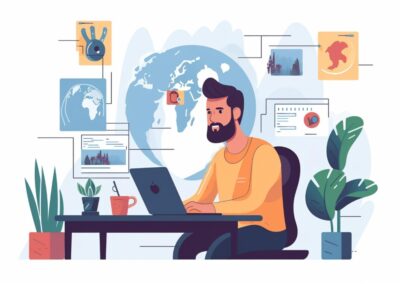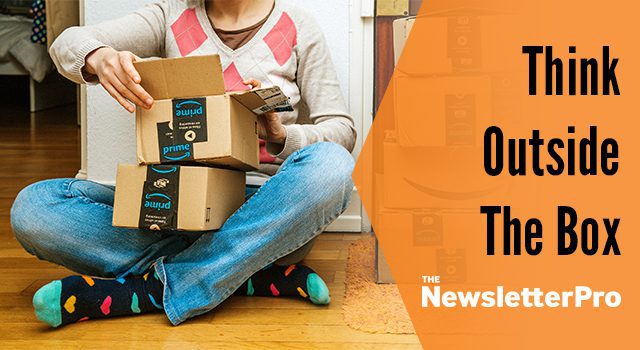
If you’re in retail, you’re likely aware of the “Amazon effect” — an ongoing disruption of the retail market. This disruption is affecting prices and sales. It’s devalued and even bankrupted what were some of the most successful and well-known retailers in the world. One reason Amazon has been successful is their price strategy. They are willing to lose money on a customer for up to five years. Wall Street hasn’t rewarded most publicly traded companies with high-flying stock prices in the past, but they continue to reward Amazon.
What Does Amazon Have to Do With You?
 Since you’re likely not in retail, it would be easy to ignore Amazon. Depending on your niche, you may even be tempted to think this article isn’t for you. But if so, you’d be missing the point. Amazon may not be breaking into your line of business anytime soon, but that doesn’t mean one of your competitors won’t copy their model and bring it to your line of business.
Since you’re likely not in retail, it would be easy to ignore Amazon. Depending on your niche, you may even be tempted to think this article isn’t for you. But if so, you’d be missing the point. Amazon may not be breaking into your line of business anytime soon, but that doesn’t mean one of your competitors won’t copy their model and bring it to your line of business.
When it comes down to it, what is the Amazon model? One-stop shopping, low prices, free shipping, and adding as much value as possible so that it is literally a bad financial decision not to do business with Amazon.
Could this be replicated in your business? In the dental niche, there is a company called Half Dental, whose tagline is “Why pay more?”
In chiropractic, there is a franchise called The Joint (yes, it is a horrible name) that charges $50 per month for unlimited visits.
There is always someone who is willing to be the low-price leader. There is always someone who is willing to work for less than you, hoping to make the profit up in volume. What do you do to compete with companies like this? How do you overcome the Amazon effect?
Rethink Why Customers Choose You
 If I were to ask a business owner right now, “Why do your customers choose you?” what do you think they would answer? Well, most people give me the same answer: “They choose us because we are the best.” Look at the taglines or advertising of many companies. They claim to be the best and smartest, typically with some note in the ad about the amount of experience they have. They talk about how great their service is by saying, “We have the No. 1 dentist in the valley” or “We’ve settled $1 billion in claims for our clients.” What does the customer think when they hear this? They think “B.S.” It’s not like you’re going to put in your ad that you’re only average. Can you imagine the ad if they did?
If I were to ask a business owner right now, “Why do your customers choose you?” what do you think they would answer? Well, most people give me the same answer: “They choose us because we are the best.” Look at the taglines or advertising of many companies. They claim to be the best and smartest, typically with some note in the ad about the amount of experience they have. They talk about how great their service is by saying, “We have the No. 1 dentist in the valley” or “We’ve settled $1 billion in claims for our clients.” What does the customer think when they hear this? They think “B.S.” It’s not like you’re going to put in your ad that you’re only average. Can you imagine the ad if they did?
I just graduated legal school and need experience. If you’re looking to give a young and hungry lawyer a shot so I can do a little on-the-job training with your case, call today. I’m half the price of the big guys, which means if I win, you save big. All prices are negotiable. Call now at 208-555-1212.
Even if the information is true, no lawyer would run that ad. So, no one believes you when you say you’re the best.
The consumer’s disbelief of advertising is one reason for the rise of online reviews. Here’s the reasoning: “Even a stranger is more likely to tell me the truth than the business is.” That is probably true, but there have been many news stories about fake reviews, which have hurt a business’s credibility to some extent.
So How Do You Stand Out?
 Nearly every business is in the commodity business. How do you keep from having to play the price war?
Nearly every business is in the commodity business. How do you keep from having to play the price war?
The good news is that the answer is simple. The bad news is that, like everything else, it takes work and effort. But that is also good news, because anything that takes work and effort is unlikely to be quickly or easily copied.
To avoid being a commodity, you need to remember one simple formula: R + E + E + I = More Profit. That’s Relationship + Entertainment + Experience + Investment = More Profit.
Let’s break each section down.
Relationship
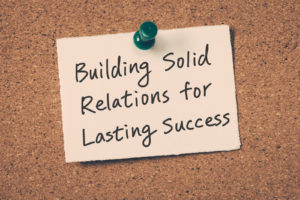
If you want to go against any competitor, big or small, you start by building a relationship to make the customer immune to offers from others. You don’t want customers to shop around — ever. There is only one way to keep them from doing so: relationships. Some people will argue that they can keep a customer from shopping simply by being the low-price leader. That is just not the case, though, because the low-price-leader position isn’t easily defended. I could undercut your prices right now if I wanted to. A business like Amazon can decide to sell your services below cost to gain market share.
Entertainment
To get people to consume your message, you need to be entertaining. We live in a world where the next exciting and interesting thing is only a click away. Being entertaining so people want to consume your content is an important step to building a relationship, which will get you maximum profit.
Experience
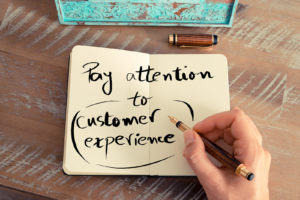 Do you want people to talk about you? If so, you have to give them a reason to talk. It is no longer good enough to do your job well in order to get a referral. You have to give people a reason to talk and even a reward for doing so. This can come in the forms of gifts and contests or by creating an experience for them to share on Facebook, like inviting them out and asking them to bring some friends.
Do you want people to talk about you? If so, you have to give them a reason to talk. It is no longer good enough to do your job well in order to get a referral. You have to give people a reason to talk and even a reward for doing so. This can come in the forms of gifts and contests or by creating an experience for them to share on Facebook, like inviting them out and asking them to bring some friends.
Investment
All relationships need investment. Practically no small businesses have a budget to invest in people who are already customers. Once they have your cash, it is almost like businesses forget you exist, because they are so busy trying to find the next new customer. This is insanity. We are all great communicators when we want money from our customers.
Growth only happens when you have new customers plus retention. No business can survive and grow on new customers alone.
Want Loyalty? Be Loyal.
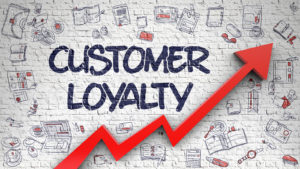 Let’s look at a dating example, which is by far my favorite way to think of new-customer relationships because of the parallels between the two. If you went out on a date three times and ended up making a sale at the end of the third date. Then after the date was over, you didn’t call again for six months. What are the odds you get another date? In that situation, 99 percent of the time, there would be zero chance of meeting up with that person again. So, why do we operate that way in business?
Let’s look at a dating example, which is by far my favorite way to think of new-customer relationships because of the parallels between the two. If you went out on a date three times and ended up making a sale at the end of the third date. Then after the date was over, you didn’t call again for six months. What are the odds you get another date? In that situation, 99 percent of the time, there would be zero chance of meeting up with that person again. So, why do we operate that way in business?
We treat our customers as second-class citizens, only calling or writing when we want something. No wonder they aren’t loyal to us. I recently had a dentist tell me they felt they were spending too much on customer retention. But when I did the math of what the newsletter cost per patient, it came out to $7.08 per patient per year. That’s too much money? They spend 35 times that amount to get a new patient in the front door. And that doesn’t even tell the whole story because, as we know, not every new customer who walks in the front door becomes a loyal customer. Many of them come in, use your services once, and NEVER come back again.
I mentioned earlier that in order to overcome the Amazon effect, you could simply study Amazon for the answer. Other than price, what makes Amazon different?
Amazon Invests in ‘Easy’
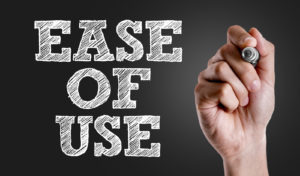 The first answer is ease. Amazon makes it as easy as possible to do business with them. They have one-click ordering, and your credit card info is saved in your account. They offer free shipping on most items that reach a certain minimum dollar amount and on nearly everything with a Prime account. It is so easy to see a product in a store and order it from Amazon. It is also easy to hear about a book at a seminar or on a podcast and, within a few clicks, it is at your home or office — sometimes within hours.
The first answer is ease. Amazon makes it as easy as possible to do business with them. They have one-click ordering, and your credit card info is saved in your account. They offer free shipping on most items that reach a certain minimum dollar amount and on nearly everything with a Prime account. It is so easy to see a product in a store and order it from Amazon. It is also easy to hear about a book at a seminar or on a podcast and, within a few clicks, it is at your home or office — sometimes within hours.
The second area that really makes Amazon unique is their customer service. Returns are easy and typically free. They don’t hassle you on most things. How often do you hear customer service horror stories about Amazon? Amazon always puts the customer first. In any meeting that Jeff Bezos holds, he insists that there is always a chair at the table left empty, and that chair represents the customer and their needs. Do you care about your customers as much as Amazon does? Are you willing to invest in them and make decisions for them, or are you simply invested in your bottom line?
Amazon Commits to Value
 Another area of difference is value. Amazon is always trying to add value. Look at the Amazon Prime membership. It costs $119 per year and gives unlimited, free two-day shipping. In an article in our newsletter, I talked about how Amazon loses about $300 million per year on its Prime membership, and that’s just in shipping costs. That loss doesn’t include all the extra features that you get with Prime, like videos on demand. Do they really need to offer free movies and TV shows to get you to buy free shipping? Most people order enough to make the $119 a year a bargain just with shipping costs.
Another area of difference is value. Amazon is always trying to add value. Look at the Amazon Prime membership. It costs $119 per year and gives unlimited, free two-day shipping. In an article in our newsletter, I talked about how Amazon loses about $300 million per year on its Prime membership, and that’s just in shipping costs. That loss doesn’t include all the extra features that you get with Prime, like videos on demand. Do they really need to offer free movies and TV shows to get you to buy free shipping? Most people order enough to make the $119 a year a bargain just with shipping costs.
With a Prime membership, you can also borrow books, which is sort of like bastardizing their original business to get you to buy this service. You get special shopping days with massive discounts, and you can use the dash buttons for easy reordering. In some cities, you can get free delivery of food from participating restaurants. The value you get is amazing.
Are You Adding Value to Your Customer Experience?
 Are you building a relationship with your customers to keep them locked in and focused on you, or are you resting on your quality of service, a hope, and a prayer?
Are you building a relationship with your customers to keep them locked in and focused on you, or are you resting on your quality of service, a hope, and a prayer?
On some level, it sucks that we have to go to such great lengths to be noticed, to keep customers, and to grow. There is so much to do and focus on as a business owner. It’s hard. But with complexity comes opportunity and the knowledge that most people won’t do hard things. Most people don’t figure out complex things. Most people don’t really care about their customers. They care about themselves.
Are you most people?
Actions always speak louder than words, so if you’re not most people, what are you going to do to show it?




